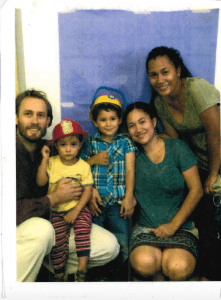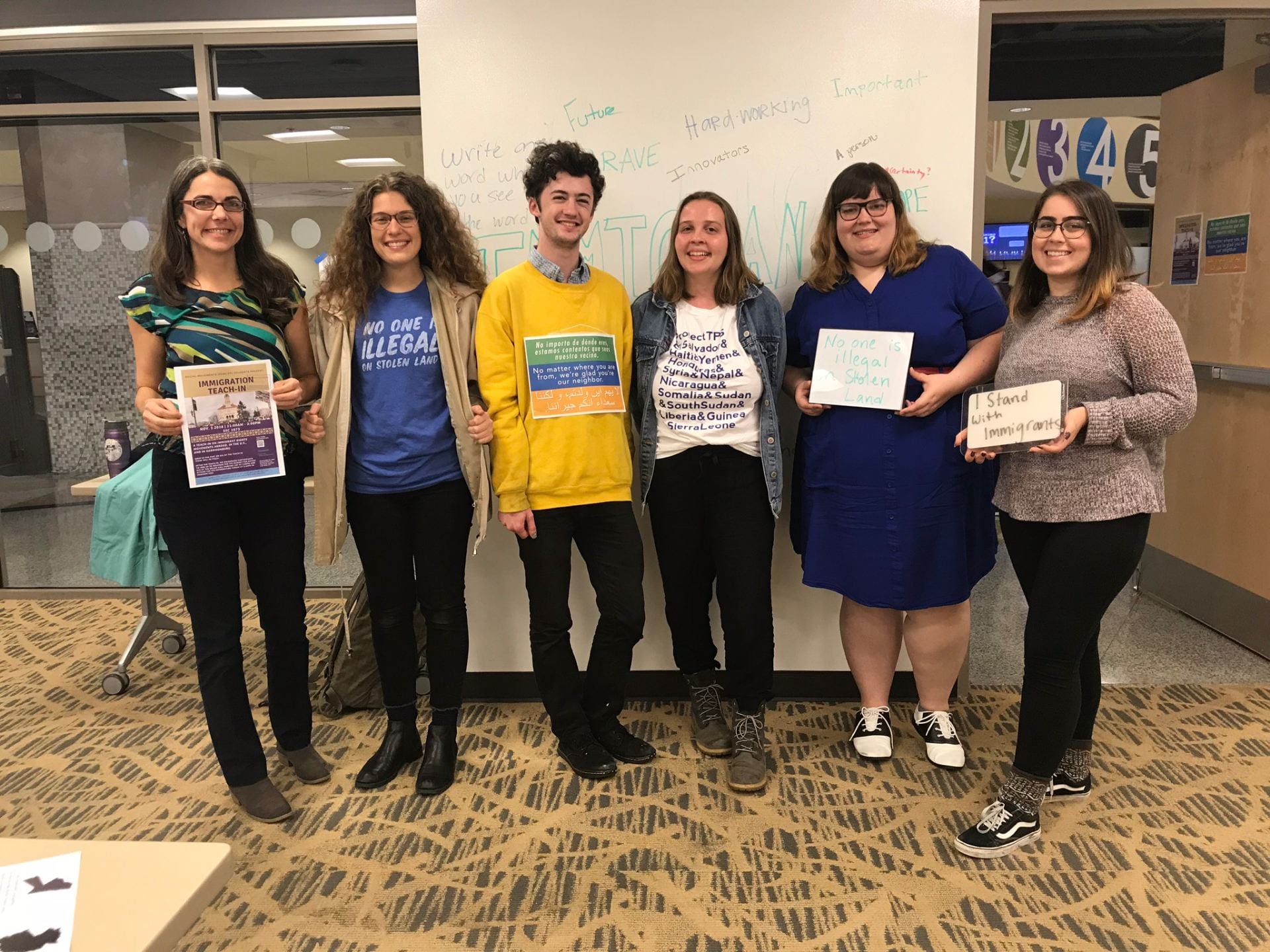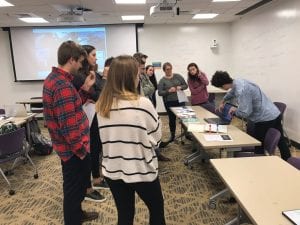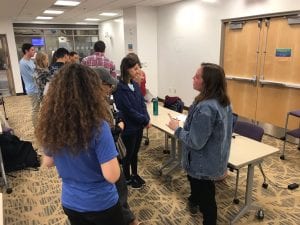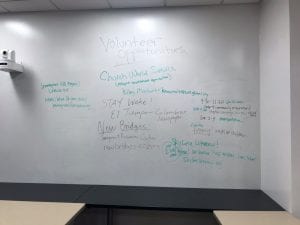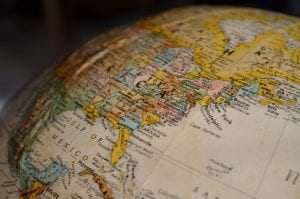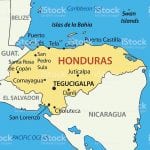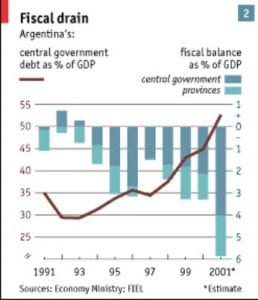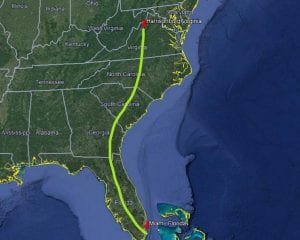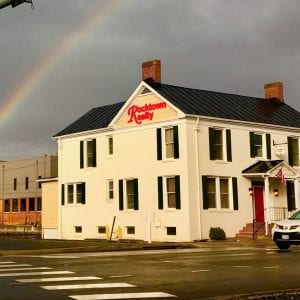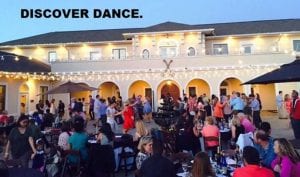Interview with Evelin Gonzales
Interview with Evelin Gonzales
MIGRATION
Evelin Gonzales was born in 1983 in Nicaragua, and lived in the countryside near the Costa Rican border with her parents and grandparents until she was a year old and her family moved to the country’s capital city, Managua. She discusses living and and growing up in Nicaragua, specifically in the city, and the overall limited educational resources:
“Nicaragua is very limited in education resources. So, what I just remember if you wanted to– the main thing for me, I really enjoy reading. And so if you wanted to read the good books you– I remember walking like a mile and a half to get to the library or more…from my high school there was a government building and they had a good library. So, but then you have to walk back home and it’s dark. I remember going after classes and spending maybe an hour, hour and a half, but you cannot check out books. So you can only read there, so you will be like, okay, ‘I’m finishing my page, 146, I’ll pick it up tomorrow’, so you have to be very disciplined.”
Evelin lived in Managua until her immigration to the U.S. 5 years ago after meeting her husband, an American citizen. Evelin met her husband while he was doing 4 years of service work for the Mennonite Central Committee in Nicaragua. After dating for three years, the couple got married in Nicaragua two months after Evelin graduated college in 2006 with a degree in accounting. During her 5-year accounting degree program, Evelin was very involved; she was a member of the student union, and did a lot of networking and research on international trade agreements and their impact on education and the lives of women. Evelin and her husband both lived and worked in Nicaragua for 12 years.
Before ultimately agreeing to move the U.S., Evelin had substantial reservations about living here. Her perceptions were based on her experiences of violence and turmoil growing up in Nicaragua’s unstable political climate, and informed her overall negative sentiments of the U.S.:
“So I was born in 1983, so we have a very long history with the United States and, the US finance– help to set and finance a dictator for 45 years in Nicaragua. So finally the Nicaraguans were able to organize a revolution until that happened in 1979. But then since the revolution there were a lot of, pretty much they wrote a new constitution and there were like more rights given to women and uh, there was uh, there was a lot of social changes and changes in the distribution of wealth too, uh, but there was also more war financed by the United States. So we had the revolution in 1917 and 1879. And then we have 10 more years of war, and so like that I can definitely remember like bombs, airplanes dropping bombs and stuff like that.”
Evelin honestly did not want to come to the U.S. She and her husband “had a long three years negotiation” about moving here. She recalls thinking, “I didn’t want to come to the US. I think that if I ever thought about marrying somebody, how that was for sure…So, um, it was really difficult to think about coming to the United States.” After she and her husband had a discussion about their personal differences and their country’s cultural differences, Evelin and her husband made an agreement to get married and move to the U.S. so her husband would be able to do work in the community, and so Evelin would have an opportunity to meet the people that “didn’t bomb [her] country” and who were “pretty much against that”.
Evelin and her husband lived with her family for 2 years in Nicaragua after they were married. Evelin describes getting her visa as “a really easy process”, because she felt she got lucky by her parents sharing a connection with the interviewer (they both attended the same university). Evelin also acknowledges that her relatively smooth immigration process, that was finalized in 30 days, was definitely unlike most cases, which often take years.
When Evelin came to visit the U.S. for the first time, she stayed for about a month and then returned to Nicaragua. She had both of her two children in Nicaragua, and came back again when her youngest child was seven months old, and her oldest was two. Five years ago, Evelin and her husband moved to Harrisonburg, her husband’s hometown, in order to be closer to his parents and his side of the family, and have been here ever since.
INTEGRATION
Evelin’s integration was a very unique case. She came to America because of her husband’s status and his family is over here. She said, “We mostly moved because we wanted the kids to be close to their grandparents for the side of the family in”. Her economic integration included her multiple visits to America. She has been back and forth for many years. Her second trip to America she got a job at a daycare:
“He came to the US, he could get a job. So we came on a Friday. He started working on Monday and um, yeah I, after two weeks I’m like, dear, I’m ready to go back home so or I get a job or I’m leaving. And so, but then I went to OCP. They had a community activity and I met a lady in She asked me, I saw a little boy walking in and he could be cute. So the lady was like, “do you like kids?” So I’m like, “I don’t know what she’s trying to say” with my husband and interpret for me and he’s asked your girl. And so she’s like, um, she was the director of program (Roberta) Webb Child Care Center and she’s like, “if I have an opening I will let you know”. And so she called me that same week and they had an opening”.
They decided to go back to Nicaragua and get married. One they had two kids and decided to move back to America after an ongoing debate and counseling. Now they have been in America for five years since their last visit. Evelin wanted to get a job quickly just like the last time since she needed her independence too. She started to work at Bowl of Good while she was looking for something more permanent. “wanted to work because I’m very independent. I go nuts with kids and home and just baby talk grownups and know I cannot be in home. I started working for a few hours and a bowl of good. So I was helping in the kitchen”. Evelin started to get a little bored so she was looking into First Step which helps those who have been in abusive relationships, specifically women. Since Evelin had experience working with a women and domestic violence prevention she thought that would be a perfect choice. Her husband suggested Everence down the street from Bowl of Good since she has an accounting background so she applied to both companies. She heard back from First Step but turned it down. “I get a phone call from the other place, offered me the job for working in First Step as a case manager. But then I’m like, no, I want to try the financial figures and do something different”. Evelin now serves as the Branch Manager for the Everence Federal Credit Union branch located in Harrisonburg. She joined the Everence team in 2015 by helping to meet clients’ needs through loans and other credit union services for individuals, families and small businesses.
Evelin talked a lot about the attitudes she received from the Harrisonburg community. When she first came to America she did not speak a word of english and was only here for a couple of months. People thought she was very nice and sweet at first. When she started to learn more english and question some things the Mennonite church was doing her friends changed their views. When she came back the second and third time the church community were not a fan of her views and reservations.
“So I feel like my first visit to the US, it was kind of a honeymoon. You don’t actually talk you’re so quiet. You’re so cute, you know, like you don’t actually express yourself because you don’t know the language. And so the second time that I came then I wasn’t that great anymore because you start seeing how are the church dynamics and how are the politics and you were like, oh, but I don’t agree with that and what is the church doing and how. And so then people were like, Oh, let me tell you how we Mennonites do it”.
Other than her few struggles with the church Evelin had a smooth transition to regular life in America. Her sister moved out to be closer to her and she started a family with a westerner as well. The process for her to get her papers were very easy. She actually applied back in Nicaragua thinking it would take a long time, enough time that she could still live in Nicaragua for a couple of years. It actually only took a couple of months so she decided to decline the order so she could stay in Nicaragua longer. We did not ask specifically about the Nicaraguan community and if she had a part with them if there was one.
Going off experiences learning English and going to school were interesting. She told us she learned English by means of work since her husband was her main translator and many did not speak Spanish at the time. “I learned English mostly by work pressure and so I enrolled into the MBA program at EMU a one year, a year ago. So I’m completing my first year”. Going into her educational experiences, Evelin got her bachelor’s accounting degree in Nicaragua and just enrolled in EMU’s Masters degree in business as she said in the previous quote. Since she had a college education before coming to America it made the whole job process and reception much easier.
Evelin spent a great deal of time talking about her preconceived ideas of America. Her political incorporation was a pretty big deal. When she was young there was a lot of conflict with the Nicaraguan government and the U.S. ideals. Nicaragua had a dictator at the time and of course America is/was against those types of power structures. The U.S. sent lots of troops and warfare to Nicaragua which affected Evelin’s perceptions of Americans. She saw them as these negative people who destroyed her homeland with bombs. Those events had a lasting effect until adulthood and resentment was very prevalent.
“So we had the revolution in 1917 and 1879. And then we have 10 more years of war and so like that I can definitely remember like bombs, airplanes dropping bombs and stuff like that. And even coming to the U.S. it’s funny because sometimes I meet people and they were like, oh yeah, “I was in Nicaragua in the eighties and I was working in the aviation”. I was like, yeah, maybe you were one of those dropping bombs, those bombs that I still remember”.
Evelin’s integration was/is very different than most stories we have looked at in our class. She came over here because of marriage and family while many did it because they wanted a better life. She had a great life and plans to return to Nicaragua very soon.
MEMBERSHIP
Overall, Evelin’s attitudes about moving to the U.S. and the U.S. in general were not favorable. To this day, and especially under our current administration, Evelin still has her reservations about living in the U.S. She discusses,
“I didn’t want to come to the U.S. because I’m like, what kind of people live in that place? What kind of– what are their values? Really? I just didn’t want it. I don’t have any desire of coming to the U.S….After the these elections I told my husband, this is exactly the country that I thought it was…”
Despite these doubts, Evelin is now a citizen of the United States. She discussed a little about the lengthy bureaucratic process and mentioned that a spelling mistake was made on her naturalization certificate and how she is currently waiting for that to be fixed, “I got my citizenship like a month ago. But my certificate, my naturalization certificate, my name was misspelled. And just to fix that it’s going to take like close to $600 and maybe between 6 and 13 months and they haven’t even sent me a letter saying that they had received the papers and I, I sent it back overnight so I know they got the papers…”
Evelin doesn’t really go back to Nicaragua for visits with her family because she doesn’t have an American passport yet, but her parents do visit once a year and stay for about a month. However, she does anticipate going back to Nicaragua with her family to potentially do a 3-5 year service term. Her two sons are both bilingual in Spanish and English, and are both enrolled in dual-immersion programs, which are offered in most Harrisonburg public schools. She also mentioned that her sons always say their evening prayers in Spanish as her mother and sister taught them.
To conclude the interview, we asked Evelin if she had any advice for her younger self, to which she answered with words I think we all have needed to hear at one point or another,
“Just be adaptable and wherever you are, just be yourself, learn the culture, it takes several years, and be open and be adaptable. I think an open mind–and I have to adapt so much in this job and in this culture, what do you say and what you don’t say and what the rituals and yeah, just be open. Um, there’s nothing that will prepare you for, you know, the different scenarios you’re going to face, but take it easy. Always take it as a learning experience. Even when I get really upset, I’m like, ‘ah, I’m definitely learning something from this one’…Everything is different and every person, I don’t know, has a way of expressing themselves and that’s not just about you, it’s about a lot more than that. And so I learned not to take anything personal and to always try to learn something from your experience and yeah, don’t let it get to you. Learn something from that experience.”
CONNECTIONS TO CLASS
In the second half of the class we talked a lot about receptions and Evelin had a good amount to say about this topic. She was well received at first but when she began discussing her personal opinions her truth came to the surface. Since then she has felt like Harrisonburg is her second home. Her sister is about to live in the house right next to her and has started her own family. In the Washington Post article by Andrew D. Perrine, you can definitely see signs of a positive reception. One even said, “This support shows us the community is standing with us. This makes us feel like we are all Americans”. What we have previously seen in Evelin’s story is very different to the stories we have mainly studied. She was not undocumented for that long and was very privileged when trying to obtain citizenship. In Roberto G. Gonazales’ “Learning to be Illegal” we saw the struggles of being an undocumented teen. Evelin says that she understood the struggle others had and because of that she would take her kids to all of the local marches surrounding immigration. She wanted to show them the other side of immigration that she fortunately did not have to go through. In the Massey reading, “Why Immigration Occurs” we see how Evelin’s marriage and connections with her husband’s family is what ultimately brought her to the United States. In fact it was the only reason why she would come over since she had reservations about America to begin with especially its government policies.
Sophie: Yeah. Do you want to just start off about talking about like where you were born and just like the background. Yeah.
Evelin: What kind of background?
Sophie: Like um, so you were in Nicaragua, correct. So just Kinda just talk about your childhood and stuff like that, if that makes sense?
Meghan: Well I guess we could start with like where and when you were born. Let’s start with something specific.
Evelin: I was born in Nicaragua, the and um, I live with my grandparents and parents until I was one year old and we were born umm. I was born in the countryside and then my parents decided to move to the city and so I grew up in Managua, the capital.
Meghan: Okay.
Evelin: Yup.
Meghan: Um, what is your like education history like? Where did you go to school? In Nicaragua or did you do that when you came to the US?
Evelin: No, I went to, um, I didn’t, I have an accounting degree and so I did that in Nicaragua
Meghan: Okay.
Evelin: And so, um, when I came to the US we came five years ago.
Meghan: Okay.
Evelin: And so, um, I learned English mostly by work pressure and so I enrolled into the MBA program at EMU a one year, a year ago. So I’m completing my first year. Oh, the MBA.
Sophie:Nice. And then when you said we, was it just you coming over or was it your family, your husband?
Evelin:Yeah, I met my husband in Nicaragua. He was an MCC, MCC is a Mennonite Central Committee. He was a service worker for the Mennonite church and so he went, to Nicaragua for four years of service, so we met there and we dated for three years and then we got married and he started working in Nicaragua, a local worker for the same organization. And so he pretty much ended up being there for a total of 12 years.
Meghan:Oh Wow.
Evelin: And um, yeah. And so we got married in 2006, I was just talking with some friends and I just got married like two months after I after i finished my college. like thats too much.
Meghan:Yeah, that’s definitely a big change.
Sophie: Yeah, for sure.
Meghan: So you said that you grew up like on the countryside and then moved to the city. What was your experience like growing up in the capital and like what was that like being there.
Evelin: You know, so growing up actually I was from like maybe one year old when we moved from the countryside.
Meghan: Okay.
Evelin: So living in the city it was, Nicaragua is very limited in education resources. Okay. So what, I just remember if you wanted to, the main thing for me, I really enjoy reading. And so if you want it to read the good books, you um, I remember walking like a mile and a half to get to the library or more and um, yeah, or uh, there was um, and from my high school there was a government building and they had a good library. So, but then you have to walk back home and it’s dark. And so, um, so I remember going after, um, after classes and spending maybe an hour, hour and a half, but you cannot check out books.
Meghan: Oh really?
Evelin: So you can only read there, so you will be like, okay, finishing my page 46. Oh, pick it up tomorrow.
Meghan: That’s crazy
Evelin: So you have to be very disciplined.
Sophie: Right. So, um, how has your, education, you said you got your degree in accounting. So how was that process like going to like college in Nicaragua? Is there any conflicts or anything, anything like that?
Evelin: Um, you know, it’s. So the, I went to a public school, a public university, and actually in accounting, the public university was the one that was pretty hard to get in. Um, it was cheap. The problem in Nicaragua is not that you cannot afford, you can only not afford college because you, your family needs your income, so you must do work. It’s not that it’s expensive. Um, but my parents were very supportive, so I applied for the university. You have a test that you have to pass and it’s very competitive. But um, I got in accounting and it was a five year program, um, and I really enjoy kind of studying in networking and so I got into, into the student union and so I did a lot of networking in research for international trade agreements and so all their student unions, we’re also focusing on that. And so we were working like in the Central American region doing education about the impact of international trades like CAFTA
Meghan: yeah.
Evelin: Yeah, because it had a lot of impact in education and women.
Meghan: Yeah, for sure. Yeah. Wow, that’s really fascinating. Um, was there like a, a culture of migration, like where you were from? Like, did you know a lot of people that like either left Nicaragua to go somewhere else or like people that went to the US? Did you know, a lot of people that left or?
Evelin: I knew a little, not in the city and the city I guess, there was a lot of migration, internal migration from, uh, the north or the countryside to the city.
Meghan: Okay.
Evelin: Um, but yes, I remember a lot of migration from my hometown because that’s close to the Costa Rican border. And so a lot of people you will know that half of my, my aunts and uncles are in Costa Rica and it is, it is very common, that kind of migration.
Meghan: Yeah. Yeah
Evelin: But I didn’t know a lot of people moving to the United States. Nope.
Meghan: Okay.
Evelin: Most people migrate in Nicaragua, most people migrate. And um, to Costa Rica and if you see it right now, if you see a with Nicaragua is struggling politically right now, but they you don’t hear about Nicaraguans and the Immigration Caravan that is coming to the US right now.
Meghan: Right, Right
Evelin: They still migrating, but they like to stay closer and I guess we don’t have the language barrier and so people just cross the border and go to Costa Rica when things settle they go back or they back and they go back and forth.
Sophie: Okay, nice. Um, so before moving to the US we’ll talk more about that, but did you have any like preconceived ideas about the US and your like perceptions?
Evelin: Definitely! We have a lot. Um, so I was born in 1983, so we have a very long history with the United States and like, the US financed, helped to set in finance a, what is it called, what is the word that I’m looking for? Dictator for 45 years in Nicaragua. So finally they (Nicaraguans). Were able to organize a revolution a until that happened in 1979. But then since the revolution there were a lot of, pretty much they wrote a new constitution and they were like more rights given to women and, there was uh, there was a lot of social changes, and changes in the distribution of wealth to but there was also more war finances by the United States. So we had the revolution in 1917 and 1879. And then we have 10 more years of work and so like that I can definitely remember like bombs, airplanes dropping bombs and stuff like that. And even coming to the US is funny because sometimes I meet people and they were like, oh yeah, I was in Nicaragua in the eighties and I was working in the aviation. I was like, yeah, maybe you were one of those dropping bombs, those bombs that I still remember. Wow. And so, so when I met my husband, we had a long three years negotiation because I didn’t want to come to the US. I think that if I ever thought about marrying somebody, who was not from the United States that was for sure. So it was, it was very interesting because I, and even agreeing can now, talking about getting married. I’m like, yeah, but we can live here, right? We don’t need to go to the United States. So, um, it was really difficult to think about coming to the United States. Uh, we even have like a counseling sessions.
Meghan: Oh really?
Evelin: It was, so they call it, like the, it was some friends that were doing a masters in psychology. And so they have, they call it family constellation. So you are in a, you have like an audience and there were like 20 people in the room. And then you are the couple, they’re used to do the counseling, so each of you is invited to choose for the audience who is going to represent your family. So you were like, okay, you can you be my sister? And could you be my? And so they asked you to arrange your family. And so I chose my mother, my father, my brother, my sister, my country. And so I put them my idea, my mom, my dad, my brother and sister. I’m the middle child and then my country in front. So my husband chose his mother, father, sister, him (himself) and the country was big, tall guy from Italy. And so I remember that. Then they ask you to introduce your fiance to the family and you go. And my husband is, he went and did a big bow to the family and to the country. And then they asked me to do the same. And then for me that was the end is it wasn’t conscious that I was standing there and thinking, I’m like, I’m just going to move my head too, you know, that’s a recognition. That’s a reverence to the country. Ten minutes later my body didn’t move and then they asked me like, hey, this is over, I can do this. And then I turned back to the guy representing the US and my body for another five minutes didn’t move. So then there was like the breaking point. There were obviously a big difference between us like are countries would have been. Yeah. So we, we discuss about that and that was when we made an agreement. Okay, okay. He was like, you know, I’m from the US but I’m [inaudible recording] I put a lot of energy and time and community development and making my community a better place. So I think that I would like you to come to the US and meet the family the people that you know, didn’t bomb your country, that didn’t finance the war. They were pretty much like against that. And so we made that agreement and that was when we, okay, we can get married now. And so we live with my family for two years after we get married and then we came to the US and we lived with his parents and his community and we went to church and I met all these other people and then we went back to Nicaragua.
Meghan: So you said five years ago you came?
Evelin: Yes, but I guess five years since we have our kids, I came that first time and yeah, we can now get to know his family. I can know Harrisonburg and pretty much like the Mennonite community. And, and then we moved back to Nicaragua.
Sophie: And how long were you back in Nicaragua?
Evelin: Five Years.
Sophie: Ahh five years again. Okay. And then how was that transition coming back into the US? Was it intended to be permanent or did you think?
Evelin: No, I don’t think this is permanent. I think I wanted to get my citizenship because that’s the other part about immigration. It’s not once you are a US resident is now that you can just go back to your country and stay there. So you will have some legal immigration status that you can, have to protect. And so were in Nicaragua for five years, but we have to do a letter like a special permits. And so when we came back I knew that I couldn’t go back to Nicaragua for many years because I needed to because I didn’t have any. If I was, if I decided to go back to Nicaragua, just to visit, I was taking the chance of not being able to come back to the US.
Evelin: And so, uh, my only choice was to stay solid, um, in the US for four years and then apply for a citizenship. And so I did that. I didn’t, I didn’t travel or do anything. Um, and then I applied for citizenship. I just got my citizenship like a month ago.
Meghan: So you got your citizenship, like separate from being married to your husband or was there like something about like him being a US citizen, because I know that there’s like the K-1 visa thing where like people can come over and like get married here or like there’s like different, like routes you can kind of take. Like were you just kind of like on your own? Like, do you know what I’m saying?
Evelin: Yes. I know what you were saying. umm I think it wouldn’t be the case. It would have been the case. I got married in Nicaragua we didn’t get married in the US.
Meghan: Right, right
Evelin: Sometimes it’s difficult when you get married outside the US, it’s better to do the fiancee visa to the US and get married. That’s the easy one. Some people like in our case, like I wasn’t thinking and coming to the United States like right away or anything. They told me that my visa was going, my, my paperwork, it was going to take between six months and a year in a half hour. So I get married soon after I finished college, then, um, then I applied for that and they give it to me in 30 days.
Meghan: Oh Wow.
Evelin: And then I was like, oh, I’m starting a new job. I’m excited about my job and I don’t want to go to the United States. Right. So I have to. And so they told me, okay, you can deny your residency and apply again. And so I didn’t have any other choice. I came, it was a really easy process and I, I can easily identify what happened. My parents went to Nicaragua, they went to the embassy, they sign in Nicaragua, the affidavit of support and she (worker at the embassy) made a special connection with the person interviewing us. They went to the same college and I don’t know what happened there, but something made everything easier after that. So we got everything, um, finalized it in 30 days and that wasn’t usually the case. Right. And so, um, so that was my experience and, and I do acknowledged that that’s the best way for most of the case.
Meghan: That’s just one that I’ve heard of, you know, the most like…
Evelin: And some I have had some other friends that they got married in Nicaragua and then the husband was in the US trying to bring her.
Meghan: Right.
Evelin: It didn’t work. Yeah. I have another friend that it was the same and NCC service worker married over there for more than a year and she’s still there trying to get her papers.
Meghan:Wow
Evelin: It was pretty it sometimes when you think about immigration in some cases about of luck, there’s no pretty much the person interviewing you decide, how is the process going to be.
Meghan: Exactly. Yeah. Um, so I know that you like with the whole story about like kind of like counseling sort of thing. You did like obviously you had reservations about leaving.
Evelin: Yeah
Meghan:What were some of like, I don’t know, like your fears and concerns, like specifically like, I don’t know, you’re leaving your family or like adapting to like a completely new, you know, culture.
Evelin: I wasn’t even thinking about that. I was just like the image of international image of the US is about, especially as in Jamaica, like the damage that the United States have been doing with a financing wars and it’s an economic strategy. You know, if you control what they eat, you control their people.
Meghan: Yeah
Evelin: If you control every time that something big, major umm war happen in Nicaragua or happened in Central America. Then as soon as everything is okay, the US gain more power or the companies, it’s not. Think about it. the big corporations, they the one, they create the, the crisis and then they gain markets, ensuring the markets. So I didn’t want to come to the US because I’m like, what kind of people live in the US?
Meghan: Yeah.
Evelin: What kind of, what are their values? Really?
Meghan:Yeah, that makes perfect sense.
Evelin: I just didn’t want it. I don’t have any desire of coming to the US. I’m like, I just, I don’t know. We had three years of negotiation.
Meghan:Are you still kind of dealing with that? I mean, are you, do you feel like, I don’t know, like better? or?
Evelin: I feel like when, when, um, after the these elections and I told my husband, this is exactly the country that I thought it was, um, like all these, you know, I don’t, I don’t blame it on the people that are working for US CIS, but it must be really hard when you were working and we are used to following rules and policies and be ethical and your behavior and comply with everything at your job. But then the law is changing.
Meghan: Yeah
Evelin: and you are processing paperwork that is sending people away and divided families. So is that about you? or is it about a system? So if you were the person that you used to send a letter saying, hey, by the way, you know, we still need these other three documents for your case and now the, the new regulations says that instead of saying you need more paperwork, they get a letter saying present to the court because you are in a deportation note. And so it is pretty hard to differentiate the people that work in the system and their ethics and the system itself. So It’s still pretty hard. I feel like with all these changes right now, this is the country that I didn’t want to come to.
Sophie: Yeah, I think we all have. Yes. Mutual feelings. Um, I would love to talk more about you coming here for the second time, which is like the time now. Um, if you would like to talk about, um, did you end up here in Harrisonburg when you came over with your husband?
Evelin: Yeah, my husband’s family from Harrisonburg. So in now we have two kids. Um, when we came, my youngest child was seven months old and my oldest child was two years and seven months. And so, uh, we mostly moved because we wanted the kids to be close to their grandparents from the side of the family and my husband only has one grandmother alive, so we wanted them to meet them
Meghan: Ohh okay.
Evelin: And um, so we came to Harrisonburg and, you know, looking for jobs and all that stuff. But what do you do when you have kids that are so little? So it was pretty difficult and I didn’t want to leave them or send them in a childcare for me it feels like um too much. And so, um, we, we played the immigration game, um, so, but I want it to work because I’m very independent and I go nuts with kids and home and just baby talk. I really need grownups and no I cannot be in home. Isn’t that healthy for me. So, um, I started working for a few hours at A Bowl of Good. Okay. So I was helping in the kitchen. I’m like, at least this is getting me out. So my husband was working for New Bridges, immigrant resource center and so as soon as he came home a few nights a week I was working there, then I’m like, no, this is boring let me find something different. And so I, I, I, I applied for a note for a job at First Step because most of my work experience, um, it was working with a women and domestic violence prevention or women and empower men or women, so a fair trade and all that stuff. Um, so I wanted to work on that field, but um also, my background is accounting. So my husband told me about a job in Everence and so I’m like, I’m look like. So I, I, I grabbed the phone and I call this office and they were like, are you available? I’m like, yeah, come now for an, from to get the paperwork. And it was actually an interview and they were like, okay, here are the paperwork apply and I am like hmm, but the same day I get a phone call from the other place, offered me the job for working in First Step as a case manager. But then I’m like, no, I want to try the financial field to do something different. And so, um, I applied, took a while to get it, but I, I got the job, I got, I was an MSR member service representative for three months and then they offered me the branch manager position.
Meghan: Cool. So when did you start here?
Evelin: Four years ago.
Sophie:Four years?
Evelin: So I was pretty new. I have learned a lot.
Sophie: Um, I would love to talk more about your kids. So you said they were born in Nicaragua, how was that process? I’m dealing with documentation and stuff like that was pretty easy?
Evelin: pretty easy when they were born in Nicaragua, and the US because of their father, they get immediate citizenship. So we just went to the embassy and, completed the paperwork. They were kind of mean in the interview. Whenever they have power they can use it. So they were like, why did you waited five years to have a baby? Did you have any abortions? They were awful. But anyway, after the interview they gave the paperwork and um, for the second child it was actually even easier. They didn’t ask any questions
Meghan & Sophie:[Laughed]
Evelin: And they just give them the paper where they even got their passports. The US passport faster than the Nicaraguan passport in a month they had everything.
Sophie: Oh Nice.
Meghan: Okay. Um, so is all of your family back in Nicaragua or are there any family members in the US?
Evelin: My sister came, so the way that I arrange ahh arrange, childcare it was that my mom came to take care of the kids for six months and then my sister came and helped me with the kids because I wanted to keep them in the home and with family and so, so they can still have that connection.
Meghan: Yeah.
Evelin: So my sister finally met some, her husband here and they got married and so now they live together.
Meghan: They live here in Harrisonburg?
Evelin: Yes, three blocks from my house. Then the house next door.
Meghan: Oh really? That’s picture perfect.
Evelin: Families to stay together.
Meghan: So let’s see, was there any like initial kind of like, when you first arrived, was there any kind of culture shock or anything? Did you experience any like “firsts”?
Evelin: Like when I came with the kids or when I came by myself?
Meghan: Yeah.
Evelin: Yeah, definitely. Like I didn’t speak the language and I knew nothing. My husband, as soon as he came to the US, he got a job. So we came on a Friday. He started working on Monday and um, yeah, I, I, after two weeks I’m like, ‘dear, I’m ready to go back home so I get a job or I’m leaving’. And so, but then I went to OCP, they had a community activity and I met a lady and she asked me– I saw a little boy walking, little baby oh so cute. So the lady was like, do you like kids? So I’m like, I don’t know what she’s trying to say, my husband interpret for me, and so she’s like, um, she was the director of program Webb Childcare Center and she’s like, ‘if I have an opening I will let you know’. And so she called me that same week and they had an opening. And so, um, I practice, my husband was asking me all these questions and I was answering, like what is your name, where do you live… So anyway, when I went there I couldn’t say anything. I was so shy and so red. And I couldn’t say– it’s like she knows everything, they were very nice and they were like, yeah, go and see the job, come over tomorrow and work the entire day. If you like it, you can, that’s your job, you know, you can do it and if you don’t like it, that’s fine. So I went there and I liked working with the kids and I learned a lot and, and I really wanted to work with kids because they say if you want to learn the language, work with kids and they don’t have any problem in letting you know that. So yeah, I did that. It was fun. I really enjoy. So it was close from home so I was able to ride my bike two point six miles and then come back.
Meghan: Were there any like negative experiences? Like maybe, like we’ve talked about, like kind of like a negative reception. Like when immigrants come to like there’s like stereotypes, things like that. People have given you a hard time about…
Evelin: No actually I have a different experience. So I feel like my first visit to the US, it was kind of a honeymoon. You didn’t actually talk, you’re so quiet, you are so cute, you know, like you don’t actually express yourself because you don’t know the language. And so the second time that I came, then it wasn’t that great anymore because you start seeing how are the church dynamics and how are the politics. And you were like, ‘oh, but I don’t agree with that and why is the church doing this and how do–’ And so then people were like, ‘Oh, let me tell you how we Mennonites do it’. I’m like ‘hmm, cool, you were so open and so different’. But when somebody is questioning the way that you do something, um, and yeah, so I think it has been the cultural shock has been more the second part when I can talk and understand and express myself. And I had different interests than just learning, and I knew I was leaving. And this one, I know that I’m leaving, but I know that I’m staying a little bit longer and that, you know, if this is not fair for me, it should not be fair for my kids either. So let’s make some changes. And so I joined like, um, there is an activity– its called Hope for the Future, is pretty much leaders of color in the Mennonite church asking for changes and not just in the church. Also in the church agencies, like Everence is one of them.
Meghan: Um, so would you say that like the reception in Harrisonburg of immigrants, maybe not just with your, like unique experience, would you say it’s like overall positive? Like do you feel like it’s an accepting place to come? I guess elaborate on–
Evelin: You know, I have a lot of privilege, I have education. Um, I have a legal status and now I’m a citizen. I get a job that I’m pretty sure that the first thing, engagement for all, or the first thing for this job was a, they knew my husband, they knew my husband’s family. Um, you were very well seen when you come from service outside the country serving for the Mennonite church. So I get a lot of benefits that I don’t think other people have. And um, yeah, I don’t think that I’m not a good person to compare with the other cases. I know a friend that I’m trying to help her and she has three daughters. She has a deportation order but nobody does anything about it, you know, it’s like, so nobody has asked any team to a lawyer or any other way to, I dunno. I feel like people in Harrisonburg are very nice and very kind and they are very um, willing to help if they connect with other people but they are not very open to people are not that. So it is confusing. It is complicated. Like if I think about the members in my church, you know, they’d go to all the marches, they have a different way of thinking, and if they knew a need they will try to help them. But then they only relate with white people that doesn’t need any help. So I’m like hmm that’s the double side of, I don’t know, it’s complicated, but anyway, maybe I’m not explaining it correctly…
Meghan: No, that’s actually a very fair point. Like we’ve been talking about how overall, receiving communities, or even people in general are more– like if they know someone who was an immigrant or if they like– instead of like “othering” people I guess would be the best way to describe it. Like a lot of people sort of like, see difference rather than seeing similarities. Like they’re, they’re not very “like me” in terms of their language or their culture or whatever. So like I’m going to separate myself from them. You know what I mean? So like, I mean that’s exactly what you were mentioning.
Sophie: Um, have you talked to your kids about your immigration story at all? Does that ever come up?
Evelin: You know, it’s, it’s amazing what kids learn, and how they interpret everything. They know about immigration just because we have this friend that has three kids and they know that, you know, things are difficult. We don’t have tv at home, so whenever they hear news or they hear stuff, they really pay attention. I remember that they went to visit their grandparents one night and my parents in law have a TV and they watch the news and so my oldest child, this was last year. He was watching the news and uh, they were listening, oh, about immigration and all these changes and all that. And they knew that my mother was coming and so he started crying and crying, woke up crying. Like, ‘Mimi’s not white, Mimi’s not from the US, they’re not going to let her come in. Mommy, I would never be able to see my Mimi.” So they get it. They know it. And yeah, there is no way that you can avoid that, you know? And sometimes they come and say, “so their parents don’t speak the language”, you know, “they don’t speak Spanish or they don’t speak English, and so are they going to be deported?” Or, “they are not white, are they going to be deported?” And so they repeat all these stereotypes from the schools, right. Or what they see or what they learned in the schools and um, yeah it is, it is– there is almost no point. They come with us to all the immigration stuff because we don’t usually leave them behind. But um, you know, I try to respect that they are kids and that they are learning and whenever they come up with questions we try to answer and the best way possible in trying to, you know, don’t scare them but tell them what’s going on. But I don’t feel like my situation has not been anything difficult and so it has not been that stressful.
Sophie: So like talking about like a multicultural family, has that influenced anything like in the schools? I know Harrisonburg’s are unique because they have a lot of languages spoken there. Is there any like anything different that you find in the schools when you have like a multicultural family like that?
Meghan: Like with the community, maybe like the other parents or teachers or anything like–
Evelin: You know I’m, I’m really bad because with this master, like I, I rely on my husband and how he connects. He works for the school system and so he takes the kids with him in the morning and he bring them– he comes with them in the afternoon. He’s pretty much the one who is in charge of that. I think the first year that Sammy was in Waterman, the way you know, I grew up with my parents coming to see me in school and bringing me like a snack at 10:00 AM. So I used to see my parents every day during school, and so I did that for, sent me the first year I went to have lunch with him every single day at 11:30 I was in the school. I will warm up his lunch and the microwave and I will jump in the car and be there. It’s so close, you know, it’s like four minutes away, that um, I get to know a lot about the teacher. I think that the teachers were kind of annoyed to have a parent there every single day, but I was able to see how they interact with the kids and set some boundaries with the teachers and with myself and expectations. Maybe they don’t get that kind of interaction with other parents. But for me, it’s like my parents did it for me. Why should I, if I’m able, why shouldn’t I do it for my kids? Um, yeah, I, there were a couple of things that I didn’t like it and I name it right away and she’s like, if you ever need to talk to– you know, she was referring in that very loud voice for child. And I’m like, okay, by the way, here I am. If you’re referring to the way that he’s communicating to me, why don’t you communicate with me and talk with the child and a different tone. Like don’t do that. So anyway, it was um– but I don’t quite relate with a school system, just because I just don’t have time. I leave work and I go to study. I sometimes have classes until 10.
Meghan: Oh 10 at night? Oh Wow. Um, let’s see. How does Harrisonburg compare with the capital back in Nicaragua? You know, big city, I’m assuming so. And then coming to Harrisonburg is relatively small…
Evelin: This is small but Nicaragua is also small and the city is not that big. I feel like the main issues– public transportation is awful. If you don’t have a vehicle you just… So I ride my bike, I walk because I was better off walking then waiting for the bus. So when I came here the first time, if I wanted to take the bus, I will have to walk a lot and then wait for the bus and then the bus will take forever. Actually I was able to get home in 15 minutes and it will take me an hour to ride the bus. So public transportation– I don’t enjoy driving. I hate it. If I can catch a ride or go with somebody else, I would love that. But um, yeah, public transportation, that was a big thing. The other is that the city is not, is not very welcoming, and doesn’t have like a main place where people can get together. Like in Nicaragua in the main cities you have like a, a park in front of the church. But people interact, and they have a common place, and in Harrisonburg downtown, if you’re not in a restaurant where are you? Like there is not a place with benches and a water fountain or something pretty where you can sit down and enjoy being with friends. I don’t see that.
Meghan: I guess was there like a– Did you, I guess observe or experience like a rich culture of um, people from Nicaragua or like I guess like Latinos in this community? Like did you see that? Did you experience it?
Evelin: You know, I experienced fear actually. Like I didn’t have– As I can say, you know, I have a lot of privilege and I can easily not worry about a lot of stuff. But working here, there was a nice lady that I was explaining to her, you know, sometimes I’m not here, can somebody else help you? And, and she was like, can you, you know, teach me how to, can I say deposit? And so I told her how to say deposit, she repeated. Withdrawal, and I say, do you know that in the library there is a nice program that you can use to learn a second language? And I use it, and she’s just like library? She didn’t know. She has been in the US for so many years. And I say, yeah, I will be in downtown today. I say, can we meet? It was like they would– we were going in circles around the town. They couldn’t find it, the library. So we finally met I think like um, close to community mennonite church, and then we walked down to the library. Then I took her to the library and we get our library card, and she’s like, ‘my son can use thi? and how much do you pay?’ So it’s not a membership it’s free. And we went and download Rosetta stone and the app on her cell phone and I explained everything. Then, she called her husband to pick us up. And then we– I remember seeing some bright lights flashing. And um, I thought, oh there must be an accident. It took, we were in the library maybe for an hour, an hour and 15 minutes. And then when we were– when her husband was coming to pick us up, those bright lights, those bright lights were– do you know Community Mennonite on 42? So the following entrance takes you through, close to the ice house and all that. So that was blocked. There was a police checkpoint. And so, um, her husband didn’t have any documents, and so he was coming to pick us up and then we got the phone call, and he starts saying, you know, I think this is a checkpoint. And then I remember the lights, then you connect everything. And I was like, oh my goodness. And he’s like, and I cannot go back because when you are in that strip, how can you go back? So he finally realized that he can turn into, I don’t know how that road, it’s more road, spangler sister, I don’t know, is a store. And so he, he went there and he even walked. It was a nightmare. It was a nightmare. I ended up like trying to find him. Then we found him. Then I say stay here or go pick up at the vehicle. I got pick up the vehicle. By then I didn’t have a citizenship. I was just a resident. I’m like, what if they stop me and I don’t know whose vehicle this is, you know, realize, I don’t know anything about his vehicle. Then I was in trouble. Finally, thank goodness, I found a way to the back road that connects that road with 42. Then I was looking for them. The main point is- those people almost got deported for going to the library. So my easy going experience with all the benefits and going wherever I want and travel wherever I want, it’s not the same. Then all the immigrants and the community that can– that’s why they just go to the poultry plant and work and go back home, because even going downtown sometimes can be risky.
Meghan: Yeah, it’s terrifying and totally unfair. Um, do you speak Spanish at home with your children?
Evelin: Both, yes. Sammy’s pretty good. Both of the kids are very, pretty bilingual and yeah, we uh, we usually go back and forth.
Meghan: Are there any other kind of cultural connections that you keep with them? Like keep at home?
Evelin: Uh, they always do their prayers in Spanish for like going to sleep and stuff like that. Um, because my mom and sister taught them that and so they had like (unintelligible). I dont know they sometimes, they talk to my mom and text her in Spanish and say this was a good day, you know, and writing in Spanish and stuff like that.
Sophie: Do they um– I know some of the schools do like the, they do like the classes in Spanish. Do you have them in those classes?
Evelin: Yeah. They’re both in the same program, in the dual immersion program.
Meghan: Cool. Um, do you, I mean obviously I’m sure you still communicate with your parents and all that. Do, do they come and visit often?
Evelin: Mhm. They come every year and stay one and a half month or so.
Sophie: And then do you ever visit them?
Evelin: I almost, no, because I, I have been in the US with the purpose of getting my citizenship. Now I got my citizenship like a month ago, but my certificate, my naturalization certificate, my name was misspelled. And just to fix that it’s going to take like close to $600 and maybe between six and 13 months. And they haven’t even sent me a letter saying that they had received the papers and I– I sent it back overnight so I know they got the papers. And so I’m stuck in this country for the next 13 months without a passport. And then whenever I get it I’ll have to get my passport. Yeah, I was going to Costa Rica for a, one of my classes and I had to do something else. Cannot leave the country without a passport.
Meghan: So you do have intentions of, I mean obviously traveling, but going back to Nicaragua?
Evelin: Yeah we don’t know yet if we’re going back to Nicaragua. We’re going to do like, um, service term and that’s usually between three and five years in one country. So we prefer to go to South America maybe. Yeah, we pretty much value the– for the kids to know that service is important.
Meghan: Yeah. And I’m sure it’s just like a really enriching experience like all around like, you know.
Evelin: Yeah. I think so.
Meghan: Yeah. I mean travel is so important I think. But um, let’s see. I guess, do you have any– I like this question. Do you have any like, advice for your younger self maybe before you came to the US? Is there anything that maybe now after living here for however many years, being married for almost 10, over 10 years. You said 2006. Yeah so 12 years. Is there anything that you would say, to you know, college grad, like to yourself, I guess. Any advice?
Evelin: Once again?
Meghan: Um, so I guess like after all this experience, you know, leaving your country and all these changes, is there any, anything you’ve learned, any advice that you’d give to your younger self?
Evelin: Just to be adaptable and wherever you are, just be yourself, learn the culture, takes several years, and be open and be adaptable. I think an open mind–and I have to adapt so much in this job and this culture, and what do you say and what you don’t say, and what the rituals– and yeah. Yeah, just be open. Um, I– there’s nothing that will prepare you for,, you know, the different scenarios you’re going to face, but take it easy. Always take it as a learning experience. Even when I get really upset, I’m like, ‘ah, I’m definitely learning something from this one’. Yeah, don’t take it personal. I’m like, sometimes I’m like, I should do anthropology, like learning cultures and study them. Um, everything is different and every person, I don’t know, has a way of expressing themselves and that’s not just about you, it’s about a lot more than that. And so I learned not to take anything personal and to always try to learn something from your experience and yeah, don’t let it go to you. Learn something from that experience.
Meghan: Very well put. I don’t think I have any more questions for you. Is there anything else you want to share? Anything specifically?
No, I hope that I didn’t go, you know, from the– too far away from the questions, say too many things…
Evelin: Yeah, I, I had um, I was helping with this research of about first and second generation of women in the United States, uh, and how they relate with healthcare and how they can identify sexual abuse or domestic violence in their house, especially with pregnant women. Those were fascinating interviews because it is just so difficult. You don’t have any resources or –Who do you talk to?
Sophie: If you don’t have a community, yeah that’s really hard.
Evelin: Yeah and, and, and I guess you, you are so vulnerable.
Meghan: Right you’re so dependent.
Sophie: Oh yeah.
Evelin: And when you don’t have immigration on your side, you, you even feel afraid of asking for help outside and all the police. What if they get to deport you? I don’t know. It’s just I have many lessons and included immigration because I have never had to struggle with them. With those. Yeah. Yeah. There’s so much privilege in my– Yeah.
